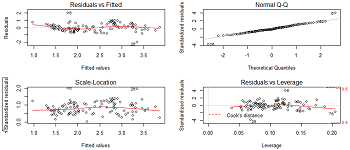Aims and Scope
 Resources and Environmental Economics (REE) (eISSN:2630-4457) is an international peer-reviewed journal to discuss, analyze and evaluate the trend of resources economics and environmental economics. With the deterioration of resource shortage and polluted environment, this journal encourages to apply economic theory and method to natural issues. Submissions of original research, review article, commentary, perspective, opinion, as well as critical article in the field addressed would all be welcomed.
Resources and Environmental Economics (REE) (eISSN:2630-4457) is an international peer-reviewed journal to discuss, analyze and evaluate the trend of resources economics and environmental economics. With the deterioration of resource shortage and polluted environment, this journal encourages to apply economic theory and method to natural issues. Submissions of original research, review article, commentary, perspective, opinion, as well as critical article in the field addressed would all be welcomed.
Topics of interest include, but are not limited to, the following:
• Resources economics
• Environmental economics
• Sustainable development
• Policy formulation, impact and response
• Management strategies
• Environmental quality indicators
• Modelling and simulation
• Renewable energy commercialization
• Environmental certification and audit
 |
ISSN: 2630-4457
Abbreviation: Resour Environ Econ
Editor-in-Chief: Prof. Muammer Kaya(Turkey)
Publishing Frequency: Semi-annual
Article Processing Charges (APC): Click here for more details
Publishing Model: Open Access |




 Ahmad Roumiani, Omid Akhgari
Ahmad Roumiani, Omid Akhgari



